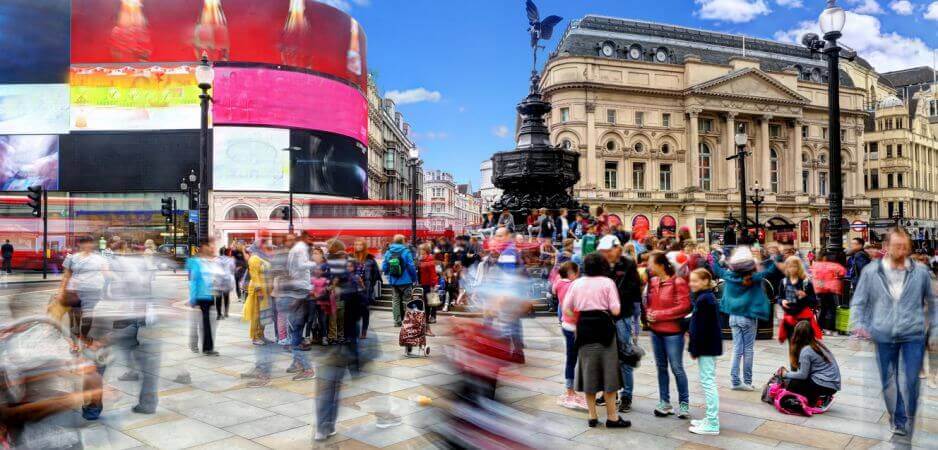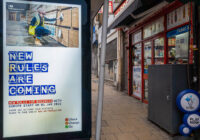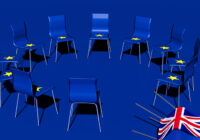The problems of populism and growing instances of far-right extremism reflect all sorts of concerns around representation.
Earlier this week, the renowned Lord Professor Bhikhu Parekh spoke at the annual Ibn Rushd Lecture of the Muslim Institute, held at the Art Workers’ Guild Hall in London. The first time I heard Lord Parekh speak was in 1996 when he spoke on the theme of 20 years after the Race Relations Act at the University of Warwick. He addressed a packed hall, with all the people in the room buzzing at the thought of the New Labour Party entering power in 1997, and a new wave of race equality and cultural diversity thinking and policy action changing the fabric of society.
It is true that New Labour’s first term invested in public infrastructure — with the only policy blunder being the Millennium Dome project — a measure of how squeaky-clean and effective the first term largely was. Since the events of 9/11 and the onset of the Global War on Terror, however, and more importantly, the War on Terror culture that came with it, Muslim groups have been homogenized and thoroughly demonized. They are held up as the main problem for all that is seemingly going wrong, not just in Western societies but also for the globe as a whole, as the Muslim world struggles with democracy in all its forms.
The Guild Hall was packed to the rafters — and the audience, consisting of young, old, the weird and the wonderful, was primed. The question was: Would Lord Parekh give us something to take away, and could we, as a body of critical thinkers, take it forward and make something from it? Parekh’s opening premise was the “clock is turning back” to a time when the illiberal approach to differences and diversity in society was championed, while ideas in relation to a leveling-out integration process, equality for all and the promotion of shared norms and values have disappeared.
Parekh gulps at the politics of the current epoch, in which the dominant hegemonic narrative both drives and feeds off populism based on fears of the other, and the threats these others supposedly pose to the nation, internally and externally. Ever since the mid-2000s, these perspectives have gradually led to a further shift to the right, at a time when the war on Iraq began and “homegrown terrorism” on European soil created new concerns. The question, therefore, is does the era defined by Brexit and Donald Trump spell a complete departure from the past and, if so, what is this new direction?
BREXIT AND TRUMP
Indeed, commonalities between Brexit and Trump exist. Both have exhibited forms of nationalism, but each is different. In the case of Brexit, Britain wants to be out of the European Union but globally interdependent, whereas Trump wants to “put America first” and go it alone. While thoughts of dread filled the imaginations of the electorate, it is important to state that these votes were narrow and, therefore, not hegemonic. Both have significant minorities within their constituencies.
There are five layers of this newfound hyper-ethnic nationalism. First, nation states are the moral and political arbiters of life. Second, they are sovereign entities. Third, restricted immigration and hostility to the outsider. Fourth, a series of shared traditions and cultures must be suitably molded. In the current climate, the Muslim category is exposed because it is said this group does not come from democratic nations, that they “hate the West,” that they engage in terrorist activities to subvert culture and so on. In the case of Trump, Muslims are excluded. In the case of Brexit, Muslims are assimilated. Fifth, the liberal elite establishment delivers “progress” for all.
This is where the tension between liberals and democrats can be fully understood. Liberals derive their energies from cosmopolitanism, universalism and the promotion of basic human values, while democrats argue for the need to remain rooted in local realities, where the will of the people is seen as sovereign.
Both Brexit and Trump share populism. It is a revolt against liberalism in an effort to champion democracy, focusing on popular anxieties. It attempts to define the will of the people, of populations as a whole, all the while homogenizing them. It is a process of planting the voice that is classed as representing the voice. Populism is authoritarian, it homogenizes and is intellectually shallow. Its basic flaw is that democracy is equated with populist sovereignty, but people are not homogenous or united. In effect, this populism is a revolt against the liberal elite, setting them up as the main reasons for the political failures, “giving power back to the people.” For those moving further to the right, as populism and authoritarianism meet hand in hand, multiculturalism is presented as the desire for separation, thereby undermining the nation state.
MUSLIMS AND MULTICULTURALISM
Multiculturalism’s origins start in the post-war immigration process, which reflected Britain’s need to reconstruct the economy and society after the debilitating effects of the Second World War but without the workers needed to do so. An opportunity arose to encourage migration from once-colonized lands to fill unwanted employment opportunities in sectors of the economy already beginning to face decline.
At the heart of multiculturalism are three defining principles. First, liberty — certain matters are clearly a question of individual choice where the state has no right to interfere. Second, equality that is not just structural but also cultural. If a Catholic woman wants to wear a cross, a Muslim woman should be allowed to wear the hijab as an equivalent. Third, integration is a two-way process, which allows minorities to feel valued and respected, motivating groups to engage in music, the arts, food and literature. In principle, these are constructive ideas, but multiculturalism did not succeed.
For the left and the right, however, the delivery and impact of multiculturalism were the disagreements. Moreover, liberals begin to use Muslims and other groups for political agendas. These were the very same liberals who promoted equality and difference as part of a historically new experiment, for which the West had no previous experience, except for Jews and indigenous minorities, all of which were annihilated or subsumed by the Christian West. Focusing on the cultural issues meant that the structural concerns fell by the wayside. For Parekh, these are the mistakes of the implementers not the designers of multiculturalism. In a liberal society, many opportunities exist for both internal and external diversity, but this has been somewhat hijacked by those who used differences in society to serve various political agendas.
 The global financial crisis of 2008 created severe economic challenges for members of societies across the world, and in spaces where existing diversity and differences were regarded as relatively unproblematic. With the onset of austerity and the implications raised by the Syrian War and the rise of the Islamic State, the Muslim category became further targeted by illiberals, whose focus on culture has become the dominant paradigm. The response to the economic crisis was not to rebalance societies, but rather to reinforce the status quo in relation to clawing back the frontiers of the state, and the primacy given to the financial sector. Brexit and Trump voters were not merely reacting to their economic malaise, but also the fears placed into their hearts and minds by illiberal elites.
The global financial crisis of 2008 created severe economic challenges for members of societies across the world, and in spaces where existing diversity and differences were regarded as relatively unproblematic. With the onset of austerity and the implications raised by the Syrian War and the rise of the Islamic State, the Muslim category became further targeted by illiberals, whose focus on culture has become the dominant paradigm. The response to the economic crisis was not to rebalance societies, but rather to reinforce the status quo in relation to clawing back the frontiers of the state, and the primacy given to the financial sector. Brexit and Trump voters were not merely reacting to their economic malaise, but also the fears placed into their hearts and minds by illiberal elites.
In this regard, young Muslims caught up in residentially-concentrated areas are separated from the cultures of their families and of British society as a whole, leading to forms of resistance and disengagement in some cases. Without local rootedness, some of these Muslims look for a global identity, where religion transcends location, nation and ethnicity. For young, angry, disaffected people, religion is seen as an ideological space for change.
With no real aspiration to alleviate deep-seated ethnic inequalities, the state seized a solution in the form of restricting people’s movements, encouraging family members to inform on each other, using the education system as a way of controlling and managing differences as well as the ideas that lie behind people’s behavior. There are also the accusations of spying on imams. This is what the Prevent strategy has become in the minds of the many, leading to accusations of Britain become a “surveillance illiberal state,” as per Parekh.
Britain is the most classed society anywhere in the world. Attempts made by the antiracist and the multicultural movements in the 1970s and 1980s that led to their heyday in New Labour’s first term were pushed back violently by the illiberal state energized by the Global War on Terror culture. To paraphrase Stuart Hall et al., “the empire struck back,” and vigorously. The only way forward is to return to equality, based on the economic, political and cultural rebalancing of society, driven by an intellectual and moral case. Differences need to be seen as forms of empowerment rather than risks to the security apparatus. A taxation and wealth redistribution system needs to be introduced to help bring about structural equality. The latter also gives an opportunity for the left-leaning among society to have a greater say and role. This is in the context of the 1% who are untouchable in media and political discourses.
What we are seeing now is a form of white riot, where the idea of “us” and “them” has transformed from a cultural problem affecting different segments of society to one that also includes the economic element, in the process hardening divisions, polarizations and agendas. The push back against diversity in the current climate is immense. Multiculturalism was able to jolt the system for a brief period, but due to its inconsistent implementation and mismanagement in a wider political context, it was attacked from all sides, left and right. Ultimately, it has been taken out of the popular lexicon and is now very much seen as “a dirty word.”
The adage “multiculturalism is dead” has bounded about for at least a decade. The question is, however, “who killed it?” Was it the state in its transition into an instrument of the illiberal elite? On the other hand, was it Muslims because their differences were seen as becoming increasingly pronounced as other ethnic and religious minorities were exhibiting patterns of integration and assimilation deemed acceptable by host societies?
Groups have always been vulnerable to negative attention as a result of a long history of colonialism, Orientalism, xenophobia and racism that have targeted people of culture and color, but arguably no more so than Muslims, whose lands were almost entirely under colonial rule at one point. This anti-Muslim bias has run throughout this period, transformed and mutated in the light of illiberal politics.
RACISM IN BRITAIN
A question was asked of Lord Parekh. “Is Britain a structurally racist state?” He disagreed. Parekh believes that spaces of hope exist and some aspects of multiculturalism still go on — for example, when it comes to certain positions in employment. This is where I disagree with Lord Parekh, as I have done throughout. The aims of multiculturalism were certainly benevolent, but they were a liberal project, not always grounded in the lived experience of communities dealing with structural inequalities. The idea of evoking liberal notions on the integration of ethnic minorities focused attention away from structure. While cultural integration allows for fusion, hybridity and hyphenated identities, it did not change material realities.
The kick-start that was to provide the rest of society ownership of accepting differences and valuing diversity was fundamentally lost when the political elites changed direction — namely in 2001 in the United Kingdom after the so-called Northern disturbances and the events of 9/11 happened a few months apart. While the demographic concentrations in certain residential sectors of towns and cities grow in relation to the Muslim populations, it concentrated disadvantage, underachievement in education and low employment outcomes, thereby moving these communities further inward.
In wider society, as the global economic downturn has affected majority working-class communities in significant ways, the fear and anxiety of an insecure future lead to anger and resentment toward groups once seen as worthy fellow citizens. Multiculturalism was never systematic enough, nor was it given enough political recognition by elites, and nor was there enough internal cohesion among minorities, some of whom used aspects of it for their own ends, ultimately pushing groups apart. Until 2001, the South Asian category very much referred to Indians, Pakistanis and Bangladeshis. After the War on Terror, the religious identity of Muslim replaced nuanced ethnic subcategories. In the process, these Muslim groups were homogenized, essentialized and rendered invisible in the process. The current problems have their root in that particular defining moment in 2001.
Presently, the problems of populism and growing instances of far-right extremism reflect all sorts of concerns around representation, as well as the participation of different segments of majority society. These concerns are similarly experienced among those affected by Islamist radicalization and violent extremism, but they are not seen in these terms by the dominant discourse. Far-right extremism is underreported and given less weight than its counterpart, which is presented as a function of the religion of the groups involved, taking all the structural determinants out of the equation. It negates years of exploitation, racialization and exclusion, promoting fears and anxieties around terror and violence, causing majority populations to yield under the weight of a mighty propaganda machine. In the future, it is unlikely that multiculturalism will resurface as a re-found paradigm for all.
The challenge is to find an alternative approach, one that celebrates diversity and differences but does so without forsaking the fight against structural inequalities. It also needs to be one that has enough ownership from diverse minority groups, as well as majority populations. This will require a fundamental rebalancing of how politics is done in today’s age. It will also mean ownership, both at the top and at the bottom of society, of the concept. The latter is arguably the biggest challenge as divisions grow and polarizations emerge in all spheres, including in the political and cultural, as well as in the economic and social.
Before any movement can start, however, there is a need to reignite an intellectual endeavor. This is where intellectual minorities can do much for society as a whole. This is where I keep pushing.
*[A version of this article was originally featured on the author’s blog.]
The views expressed in this article are the author’s own and do not necessarily reflect Fair Observer’s editorial policy.
Photo Credit: Anatoleya
Support Fair Observer
We rely on your support for our independence, diversity and quality.
For more than 10 years, Fair Observer has been free, fair and independent. No billionaire owns us, no advertisers control us. We are a reader-supported nonprofit. Unlike many other publications, we keep our content free for readers regardless of where they live or whether they can afford to pay. We have no paywalls and no ads.
In the post-truth era of fake news, echo chambers and filter bubbles, we publish a plurality of perspectives from around the world. Anyone can publish with us, but everyone goes through a rigorous editorial process. So, you get fact-checked, well-reasoned content instead of noise.
We publish 2,500+ voices from 90+ countries. We also conduct education and training programs
on subjects ranging from digital media and journalism to writing and critical thinking. This
doesn’t come cheap. Servers, editors, trainers and web developers cost
money.
Please consider supporting us on a regular basis as a recurring donor or a
sustaining member.
Will you support FO’s journalism?
We rely on your support for our independence, diversity and quality.






